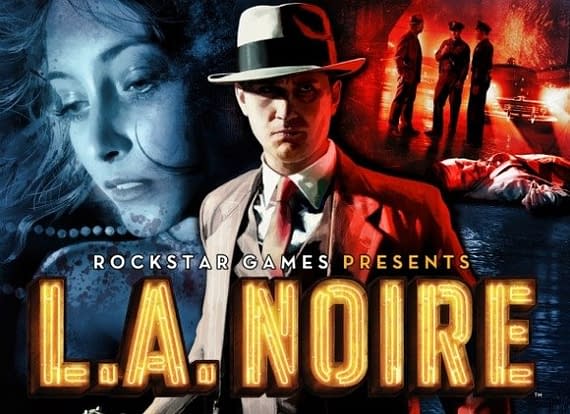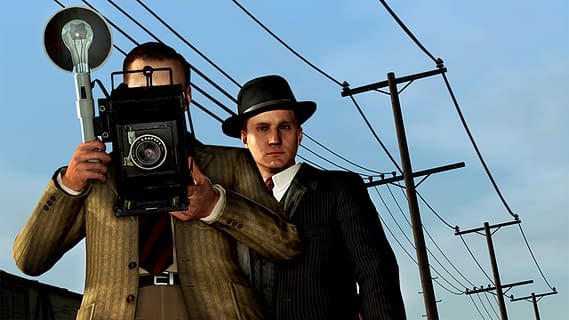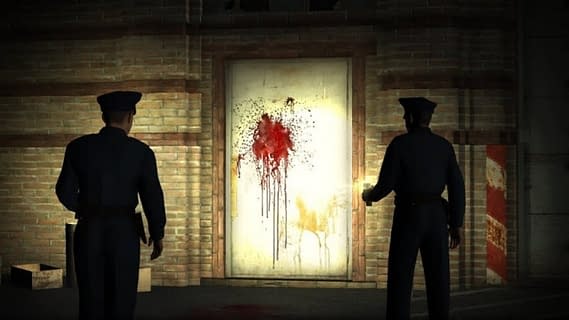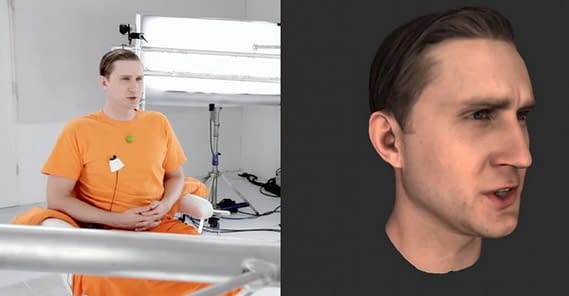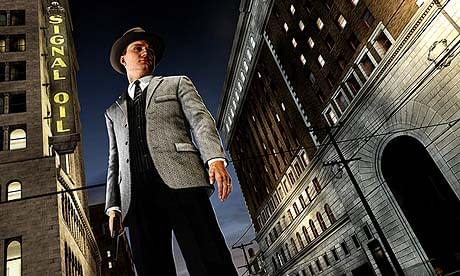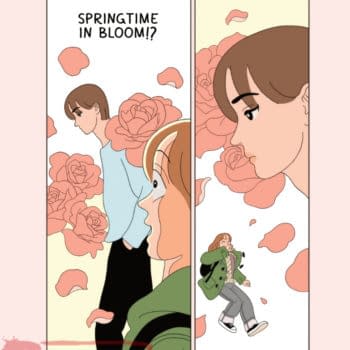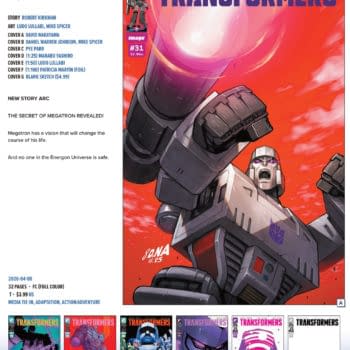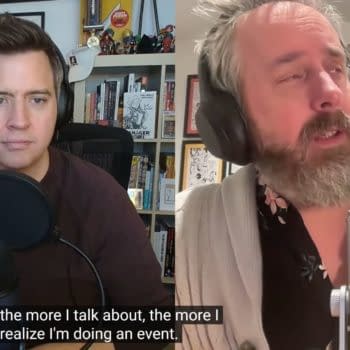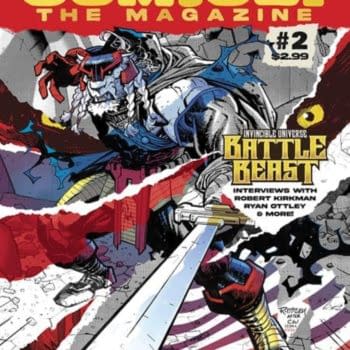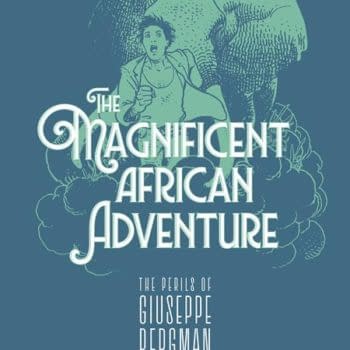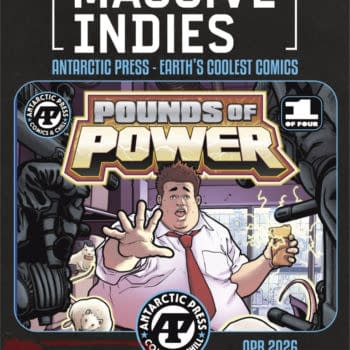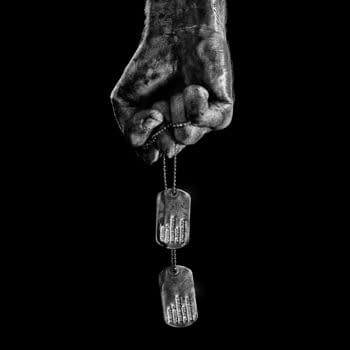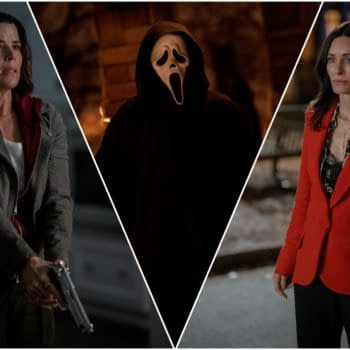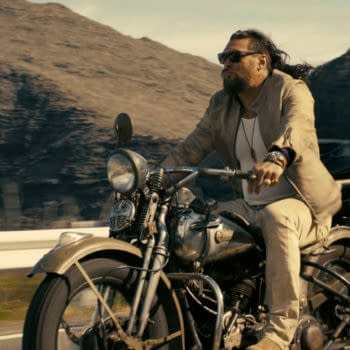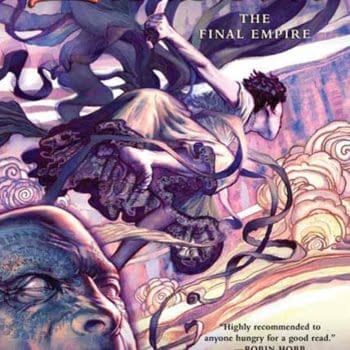Posted in: Look! It Moves! by Adi Tantimedh, Movies | Tagged: games, la noire
Look! It Moves by Adi Tantimedh #101: Three Click To Be Noir
LA NOIR is being hailed as a remarkable achievement in games and a watershed in the evolution of video games. Even Charlie Brooker live-tweeted that he was blown away by it and has devoted his Guardian column this week to it. It was the first video game was previewed at the prestigious Tribeca Film Festival in New York as a kind of indication of the mainstream's dawning acceptance of video games as well as a major marketing push to promote the game to an audience that doesn't normally play video games. That seemed to pay off, since the audience's reaction was that it felt more like a movie than a video game, which has been its mission all along.
(I'm going to call it LA NOIR without the 'E' because the 'E' is incorrect. It's not feminine, so it doesn't need a damn 'E'.)
LA NOIR has been hailed by journalists and critics as a step towards a more mature type of video game. The running and shooting are minimal, a sop to gamers who expect a GTA-style action game, but the real engine driving the game is the cop's method of interrogating suspects and witnesses, watching their faces, listening to their voices and catching them in a lie, then forcing them to confess to secure an arrest.
I've thought RED DEAD REDEMPTION was fascinating as a time capsule for the Western genre and its evolution through the decades in movies, but LA NOIR is more than just a repository for the conventions of the Noir genre. The makers did a lot of research and the game world is steeped in the social history of post-WWII Los Angeles, the year when the crime rate was at its highest, when the Police Department was facing charges of corruption, when plans were drawn to built the Freeway that would link up the disparate suburbs of the city, a period when Los Angeles was on the cusp of becoming the quintessential American city of the future. Of course, that was also the period when the noir genre was about to emerge as post-war malaise set in, with returning veterans finding themselves unable to fit into the American Dream.
Of course, all this is shot through the filter of movies and subsequent TV shows. LA NOIR references the old DRAGNET TV show, which ran before most of us were born, and L.A. CONFIDENTIAL (which also referenced DRAGNET as a cultural touchstone and propaganda band-aid smoothing over the corruption of the LAPD at the time), movies directed by Robert Wise, Curt Siodmak, Jacques Tourneur, CHINATOWN, THE TWO JAKES and countless others. Most of all, the sense of tightening darkness in the game plot as the cases, many based on real cases, become interconnected with the increasingly ambivalent cop hero's own dark secrets go beyond Raymond Chandler to the novels of James Ellroy, whose novels push pulp noir into phantasmagoric psychosexual confessionals of tortured men with badges in a festering Los Angeles of the Mind. I've always been fascinated with L.A. as a state of mind, as the mythical American City of Dreams and Nightmares, and the makers of L.A. NOIR must have felt the same.
All the hype over the advances in capturing the actors' most subtle facial nuances as you role-play the cop trying to work out of they're lying also feels like a kind of beginner's lesson in reading people's faces, almost to the point of cartoonish hyperrealism, especially in the early part of the game which were more like a tutorial where the actors being interrogated were probably directed to mug and gurn as much as possible so that you decide right off they had to be lying. The other thing I learned from playing for a few hours is that cops end up looking at everyone they interview as a potential liar and perpetrator. It's not a very pleasant way to get through life, actually.
Another thing about LA NOIR is that it's really an old-style Adventure Game, the type that were big in the 1980s and 90s. Charlie Brooker, himself a hardcore gamer, recognized that. Those games were story-driven and depended on you clicking the right dialogue choices and combining the right objects to move through the game, and here game and story were totally intertwined. I can't say I was ever a fan of the combo puzzle minigames from those days, which can involve completely absurd answers you would never think of in a million years, like having to have some beaver dung, old straw and glue to craft a beard with which you will disguise yourself in order to convince a stroppy shop assistant to let you have the keys to a car you need to drive to the next location and story chapter. This latter kind of minigame was often played as spoofs or ridiculous comedy like the MONKEY ISLAND series or the SPACE QUEST series, but it can get frustrating when you can't for the life of you figure out what exactly you're supposed to do. While Adventure games were mostly made for the PC, their dynamic of choosing different dialogue to say to a character to advance the game and story has been adopted for a lot of high-end role-playing games on console like all of Bioware's games from MASS EFFECT to DRAGON AGE, which are sold as full-blown escapist fantasies with combat on top of role-playing. What's got everyone excited about LA NOIR is the idea that it's the next step in the maturing of video games where you're not just running around shooting everything in sight, but actually slowing down to actually observe and listen to how people speak and behave as you play out a story. So the First-Person Shooter fans have their share of the market as they go online to shoot each other in the head and tea-bag the virtual corpses, there might be a growing market of high-end video games that concentrate on characters and human drama. Can you imagine a video game out of something like Ingmar Bergman's PERSONA or THROUGH A GLASS DARKLY? You have your hero Sven, a severely depressed university student having a deep existential crisis and he's in a room with a beautiful girl. You're presented with the following choices:
Discuss the nonexistence of God.
Make your excuses and leave the room.
Have sex with her.
Then each choice has a different outcome. Sven then has to decide to:
Go back and tell her you love her.
Go get drunk to drown your despair.
Kill yourself.
This kind of thing fascinates me – it gives the writer a chance to explore every possible narrative path for his character instead of being forced to settle on one. Where the PC adventure games tended to have low-end graphics, LA NOIR cost at least 100 million dollars to get all that immersive 3D and real acting. At heart, these games are still about clicking on a choice to get to the next stage of the story. Japan has their version of this in visual novels. If LA NOIR is a big hit, things could get interesting. Video games like LA NOIR are threatening to overtake Hollywood in cultural relevance and immediacy because the stories are better-written and players feel a deeper sense of investment because they become active participants in the story rather than passive viewers.
Meanwhile, I'll leave you a taster for a new old-school Adventure game, HECTOR: BADGE OF CARNAGE. It's not that far away from LA NOIR, and it's available for the PC, Mac and iPhone.
[youtube]http://www.youtube.com/watch?v=eoumN6uPmJY[/youtube]
Watching out for shifty eyes and flop-sweat at lookitmoves@gmail.com
Follow the official LOOK! IT MOVES! twitter feed at http://twitter.com/lookitmoves for thoughts and snark on media and pop culture,
stuff for future columns and stuff I may never spend a whole column writing about.
Look! It Moves! © Adisakdi Tantimedh


